“Unit 1991” has completed the first training course “with excellency". The course that kicked off in late January 2020 was held in the classroom for more than two months, and in mid-March was already online due to the coronavirus pandemic. Successfully overcoming the challenges posed by COVID-19, the course has managed to maintain the high bar set and provide quality education to the participants.
“Unit 1991” second online training course kicked off in July 2020.
Mediamax jointly with the organizers of “Unit 1991” training course sums up the first course and tells about the innovations made in the second one.
The success of the first training course
Based on the feedback received from the participants and their final projects, David Sarkisyan, FAST Vice President for Advanced Research Initiatives, says that the course has brilliantly implemented the tasks set and recorded excellent results.
“We are very impressed with how the participants have managed to master the algorithms in a short period of time. After some improvement and compliance with specific requirements, the algorithms can have practical application in the Armed Forces. We are very pleased with the results of the first course. Although the COVID-19 pandemic was a big challenge for all of us, and the transition to an online format required some changes, we are glad that the majority of the participants remained interested till the end of the course,” says David Sarkisyan.
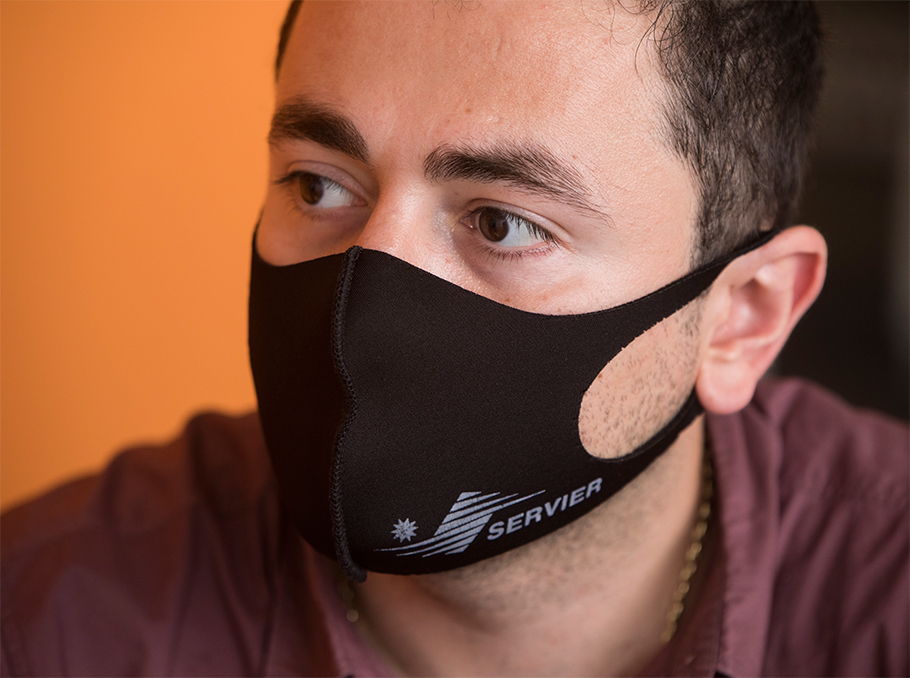 David Sarkisyan
David SarkisyanPhoto: Mediamax
David Sarkisyan says that the feedback of first graduates on the course are very inspiring, and they are planning to conduct a survey among the participants in the next stage to strengthen and improve the program, as well as correct the weaknesses.
Nshan Potikyan, “Unit 1991” teacher, AI programmer at FAST, has seen a lot of progress among his students throughout the 6-month duration of the course.
“Our main concern was that it will be hard for school students to fully master the course. But these concerns were in vain. They were very successful. There were students who didn’t know Python programming language well but by the end of the course you could see how skilled they were. The same can be said about other subjects. The students were especially interested in deep learning algorithms,” says Nshan Potikyan.
With their final projects the participants have managed to justify the expectations of teachers. “This gives hope that the project we’ve started will eventually serve its purpose.”
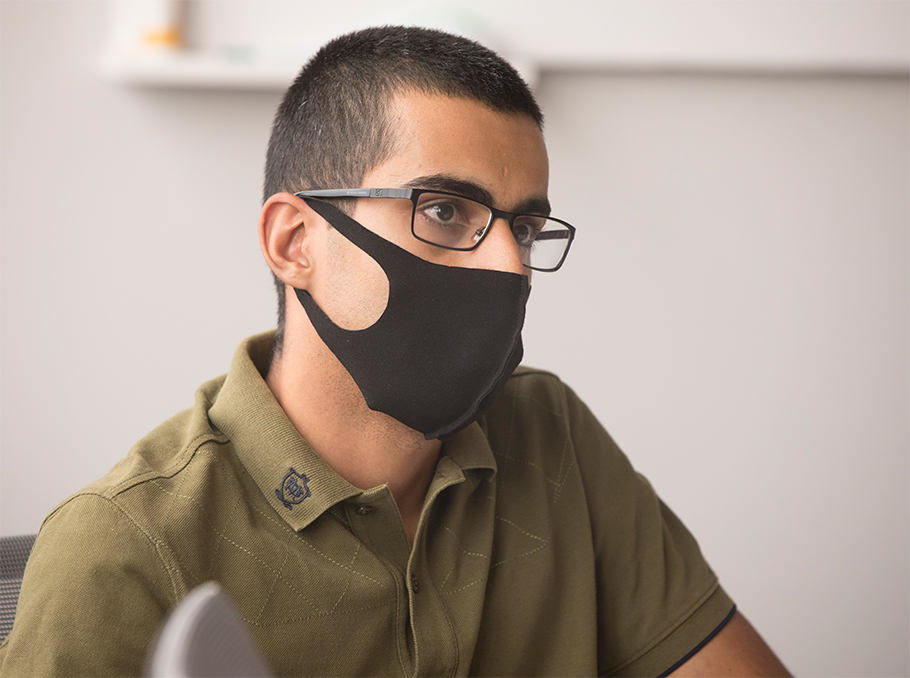 Nshan Potikyan
Nshan PotikyanPhoto: Mediamax
Vazgen Mikayelyan, Yerevan State University post-graduate student, senior machine learning engineer at Krisp, who teaches mathematics at “Unit 1991” training course, says that although math taught during the training course is a bachelor's course program, nevertheless school students were especially active during that lesson.
“They actively asked questions, conducted discussions and grasped the material. It was a little bit unexpected for me because I thought that mastering the academic course would be somewhat difficult for them,” says Vazgen Mikayelyan.
According to him, in addition to providing knowledge, the training course has also shaped the students’ mathematical thinking, which will be useful throughout life.
After the final exam, the participants will be awarded graduation certificates and the best ones will receive certificates of excellence. And to serve in “Unit 1991”, the graduates of the first training course should pass the competition announced by the Armenian Ministry of Defense.
Innovations of the second course
When organizing the “Unit 1991” second training course FAST took into account the experience gained during the first one.
A very important innovation is the duration of the course. This year it will be held in a 6-month and 12-month format. Conscripts subject to winter conscription 2021, will pass the 6-month course in order to be able to complete it and apply for the competition to serve in “Unit 1991”.

Photo: Mediamax
“The 12-month course will give an opportunity to prepare more students in a longer period of time. We have initially planned to expand the course, extending the term to 2 years like in Israel for example. It will further increase the number of participants who will be able to join the course and then participate in the competition to serve in “Unit 1991”,
says David Sarkisyan.
The participants of the second course will have 3 months, instead of 3 weeks, to prepare their final projects.
“We decided to give the participants more time to develop, finalize and present better projects,” says Davit Sarkisyan.
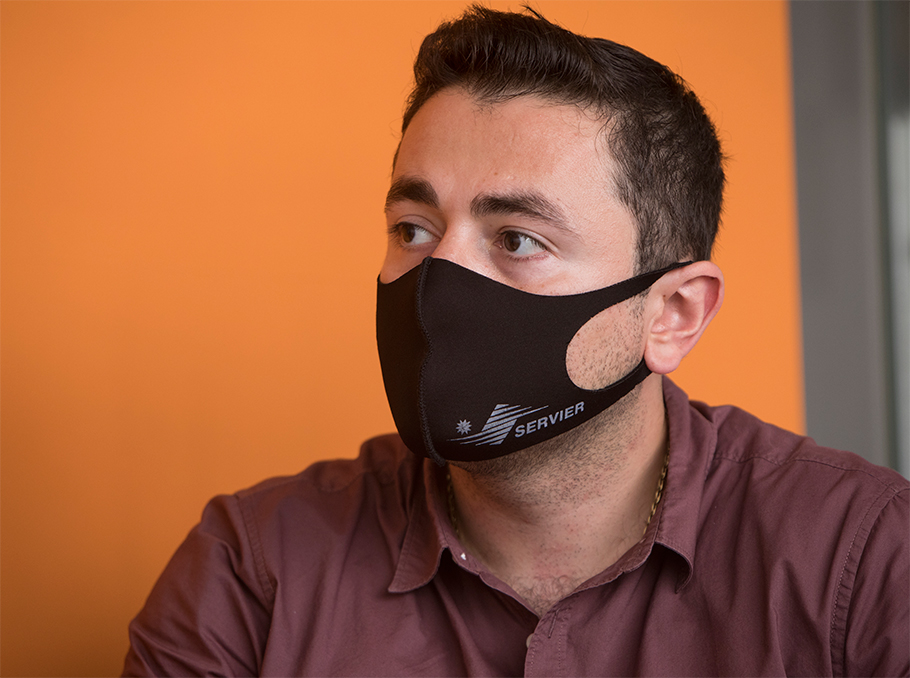 David Sarkisyan
David SarkisyanPhoto: Mediamax
The course will focus more on machine learning algorithms - classical machine learning and deep learning.
When preparing the second course, Nshan Potikyan says, they were guided by the feedback and opinions received from the graduates of the first one.
“During the first course I figured out what to improve and what to focus on more. I think we will be able to improve the program in terms of content as well,” he says.
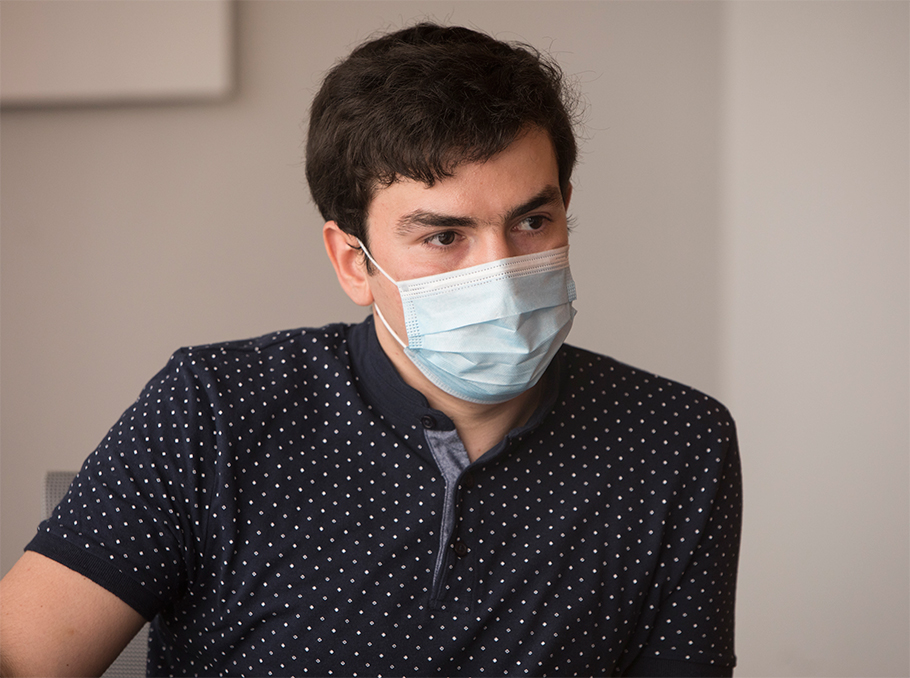 Vazgen Mikayelyan
Vazgen MikayelyanPhoto: Mediamax
Vazgen Mikayelyan says that it was a bit difficult to draft the first course since he had no idea what knowledge the participants would have. Now the task is much easier.
“Now, I know what kind of audience I will work with, and thus, I can easily picture the course. Nothing will change in terms of theoretical mathematics as compared to the first course. As for machine learning, it is constantly evolving and new scientific articles are published, so the course material is subject to change,” says Vazgen Mikayelyan.
More than 400 people have applied for “Unit 1991” second training course and the competition was very high. This time, selection rounds were held online. Nine participants of the second training course are from Armenia’s regions; 60 out of the selected participants are boys and 5 are girls.
Marie Tarian
Photos: Emin Aristakesyan
Video: Gayane Yenokyan









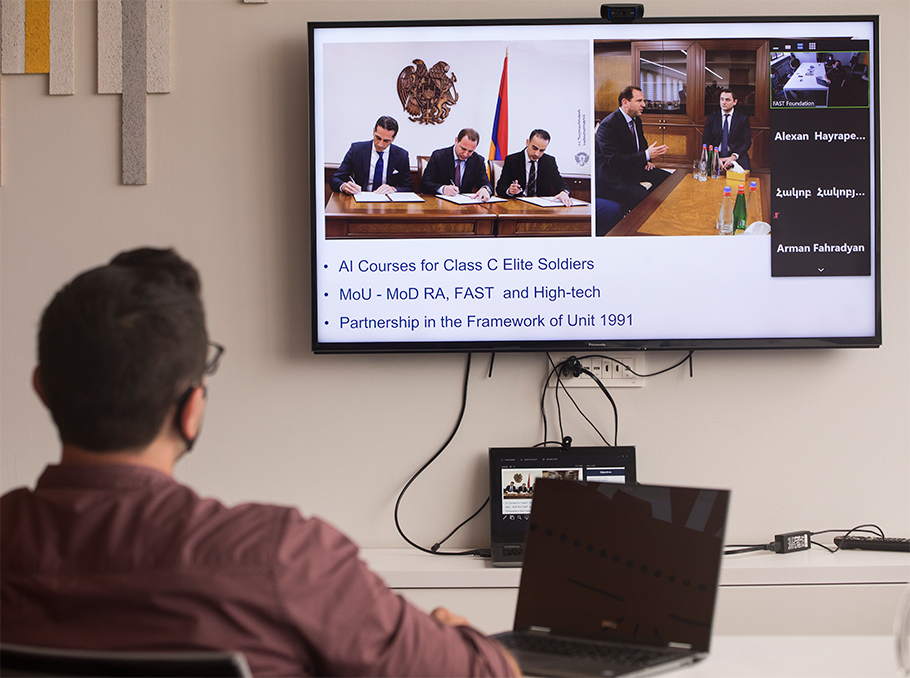


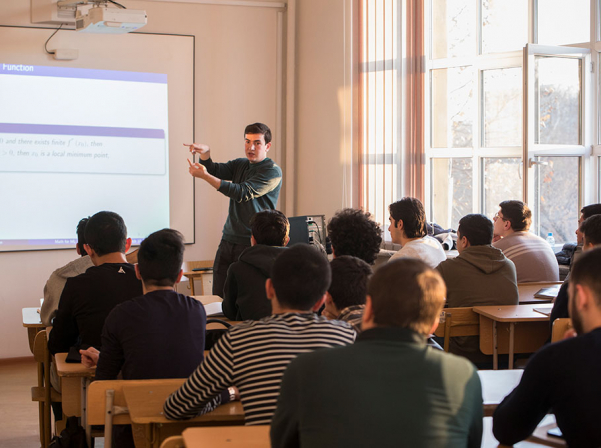







Comments
Dear visitors, You can place your opinion on the material using your Facebook account. Please, be polite and follow our simple rules: you are not allowed to make off - topic comments, place advertisements, use abusive and filthy language. The editorial staff reserves the right to moderate and delete comments in case of breach of the rules.